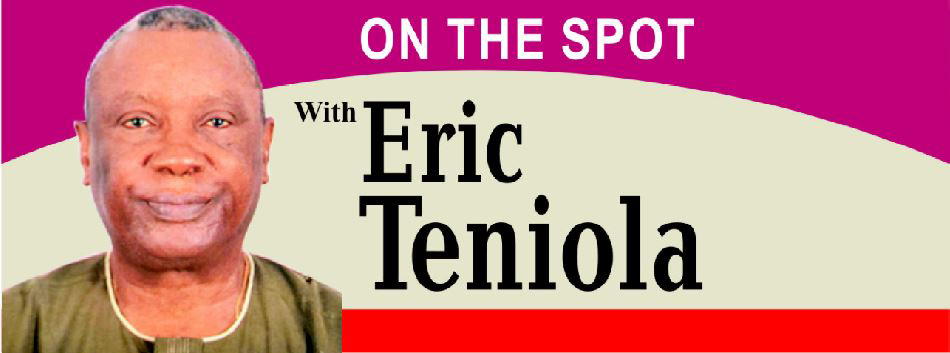

By Eric Teniola
Last week’s instalment focused on the government’s realisation of its responsibility of diversifying the revenue base from petroleum related taxes
FEES for oil pipeline licences, haulage fees and all such fees prevalent in the oil industry but not limited to the above listed. Second Schedule Sections 3(4) Supplementary Provisions Relating To The Board Proceedings of the Board I.
Subject to this Act and section 27 of the Interpretation Act, the Board shall have power to regulate its proceedings and may make standing orders with respect to the holding of its meetings, and those of its committees, notices to be given, the keeping of minutes of its proceedings, the custody and production for inspection of such minutes and such other matters as the Board may, from time to time determine. 2.(1)
There shall be at least four ordinary meetings of the Board in every calendar year and subject thereto, the Board shall meet whenever it is convened by the chairman, and if the chairman is requested to do so by notice given to him by not less than four other members, he shall convene a meeting of the Board to be held within 14 days from the date on which the notice was given.
Sections 2, 25 and 68. Federal Inland Revenue Service (Establishment) Act 2007 No. 13 A193 2. Every meeting of the Board shall be presided over by the chairman and if the chairman is unable to attend a particular meeting, the members present at the meeting shall elect one of them to preside at the meeting.
In fairness some of the reforms projected by the President have been implemented by the FIRS. To their credit, the past chief executive of FIRS, from Mr. Babatunde Fowler who served from August 2015 to December 9, 2019 and the present chairman, Alhaji Muhammadu Mamman Nami appointed on December 9, 2019, have been forthcoming in their to revenue collection drive. Just like last year alone, the organization collected N4.95 trillion.
There have been arguments as to the type of revenue the FIRS could collect or not. There are those who still insist that the state governments are entitled to certain percentage of what the FIRS collect in their states. In the view of Mr. Olumide Fusika, SAN,1. Section 162(10) of the Constitution defines public revenue.
It is any income or returns accruing to or derived by the Goverment of the federation from any source (which, of course, would include taxes) 2. Section 162(1) of the constitution provides that public revenue derived as income tax proceeds of military and police personnel, staff of foreign affairs ministry and residents of the FCT belongs exclusively to the FGN.
All other public revenue must be paid into the Federation Account for sharing among the FGN, the States and the LGs. 3. Section 162(2) prescribed that sharing from the federation account pool shall be done using a formula prescribed by the RMAFC and approved by the National Assembly on the principles of population, equality of states, internal revenue generation, land mass, terrain, and population density.
However, public revenue derived directly from any natural resources shall first apply the criteria of derivation of not less than 13 per cent to the host state. 4. Outside public revenue directly derived from natural resources, the derivation principles is further prescribed in Section 163 of the Constitution.
That section provides for application of derivation principle to the sharing of public revenue derived from taxes and duties listed in the exclusive legislative list. By section 163(b) where such tax or duty is collected by the FGN or a federal authority, then there shall be paid to each state a sum equal to the proportion of the net proceeds of such tax or duty that are derived from that state. 5.
The tax items under the exclusive jurisdiction of the Federal level of the Federation are stamp duties and taxation of incomes, profits and capital gains (items 58 and 59 of the exclusive legislative list). 6.
In the concurrent legislative list, item 7 provides that in the exercise of its powers to impose any of the said prescribed taxes, the National Assembly may provide that the collection or the administration shall be carried out by the government of a state or other authority of a state.
Since the use of “may” in this section isn’t mandatory, the National Assembly chose to confer the authority to collect and administer them on the FIRS, which in turn remits what it collects to the federation account where the FGN distributes, obviously without strict observance of the constitutionally prescribed derivation principle of 100 per cent of the net proceeds (that is, what remains after administrative costs of collection) to the states where the duty it tax are derived from.7.
The judgment of the FHC, P/H Division, is simply that the taxing powers of the FGN are those listed in items 58 and 59 of the exclusive legislative list (apart from PAT from the category of personnel exclusively reserved to the FGN under section 162(1) of the 1999 constitution).
VAT (that is, taxes on sales and consumption) is not one of them. 8. If for reasons of ease of collection and administration, the FGN (National Assembly), with the buy-in of the states, has made an Act to regulate the collection of VAT in order to prevent the confusion that leaving each state to make its own law on it that should ordinarily be all well and good.
But going beyond that to appropriate or use what is collected whimsically without regard to constitutional order is the crux of the matter. At the time the VAT decree was promulgated by General Babangida in 1993, there was little input from the state governors.
There could not have been any input because at that time we were operating a rigid military administration, even appointments of governors at that time was a military posting.
The post The new VAT combat is a protest (4) appeared first on Vanguard News.
0 Commentaires